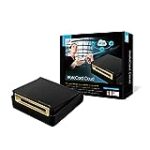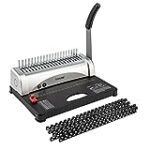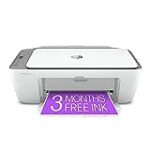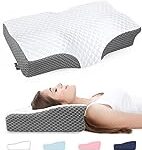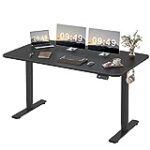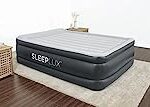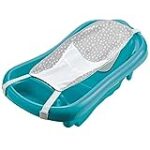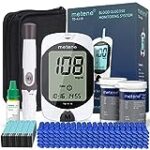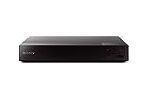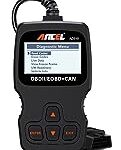🌅 Introduction
Welcome to our comprehensive cash registers best value guide! Are you a business owner in search of an efficient and cost-effective solution to streamline your point-of-sale operations? Look no further! In this guide, we will explore the top cash registers that provide the best value for your money. Whether you run a small retail store or a bustling restaurant, our expert team has carefully curated a selection of cash registers that combine **affordability**, **functionality**, and **reliability**. Discover the perfect cash register that meets your business needs and maximizes your profits in this essential buying guide.
🏆 Our Top 5
- Makes transactions easier and stores information for future data tracking,
- Single thermal printer for receipt printing
- Keeps track of 24 departments and up to 4000 price look ups
- Capable of keeping up to 10 clerk ID’s
- Anti-bacterial keytop
- 24 Departments
- 2,000 Price Lookups
- 10 Clerk Ids
- Cash, Check, Or Charge Sales Registrations
- 4 Automatic Tax Computations
- 16 departments
- 999 Plus (price look-ups)
- 8 clerks
- 4 tax rates (including Canadian, Add-On and VAT)
- Front (Clerk) and rear (customer) LCD displays
- Compact and Sturdy: These checkbook registers offer clear pages with 17 lines each, making it easy to track account withdrawals; The bold layout and spacious rows and columns (0.32 in wide) provide a comfortable writing experience
- Simplify financial management: The Casmonal account books help you effortlessly remember automatic deductions, dodge overdraft risks, and gain insight into your spending patterns, making financial tracking simple and clear
- Financial instruments: These transaction Registers simplifie your financial monitoring, helping you easily manage your balance, precisely budget, and work towards your financial goals; It's a convenient tool for achieving financial success
- Personal and Small Business Finances: The check register simplifies tracking of payments and deposits, equipped with columns for item numbers, transactions, and balances, making it an ideal tool for managing both personal and small business finances
- Small and Portable: These compact 6x3 inches checkbooks are perfect for on-the-go financial tracking and feature a stylish calendar from 2025 to 2027, guiding you through a better financial journey
- DURABLE POS CASH DRAWER: Volcora cash register drawer measures 13"x13.25"x4", voltage is at 24 VDC. Our money drawer has a heavy duty durable metal frame that is an ideal cash register for small businesses and even big establishments too.
- 4 BILL 5 COIN SLOTS: Our small cash register has a built in cash tray that comes with a removable coin tray to maximize the partitions to 4 bill slots and 5 coin slots. The front panel has 1 media compartment for large bills, checks, and receipts storage without opening the drawer.
- SECURED CASHIER REGISTER: Our cash box with money tray and lock is secured with 3-position key lock: 1-manual open, 2-auto open by printer/POS, 3-lock. Perfect as cash registers for business, our package includes 6 keys for additional backup.
- CONNECTIVITY AND COMPATIBILITY: Our cash drawer suits the point of sale system for small business. Just connect the cash drawer to a receipt printer via the RJ11 / RJ12 cable included in the package, and then to your POS to automatically open or close cash trays. Our cash drawers can be used with most major receipt or thermal printer brands. Compatible with Star, Citizen, JAY, and Bixolon. (No USB port, so CANNOT be connected to POS directly via USB)
- 100% LIFETIME GUARANTEE: Contact us if you are not satisfied with our cash drawer tray for checkout counter and we will send you a new replacement.
🤔 How to choose?
1. Price and Budget Considerations
When it comes to purchasing a cash register, it is important to consider your budget. Setting a price range will help you narrow down your options and focus on finding the best cash register that fits within your financial limitations. Remember, you want to find a balance between affordability and functionality. As Warren Buffett once said, “Price is what you pay. Value is what you get.”
2. Size and Portability
The size and portability of a cash register should be taken into account, especially if you have limited counter space or if you frequently need to move the system around. A compact cash register with a small footprint would be ideal for these situations. On the other hand, if you have a large business with high transaction volumes, a more robust and spacious cash register may be necessary.
3. Features and Functionality
Consider the features and functionality that are essential to your business operations. Some important features to look for include barcode scanning capabilities, inventory management systems, and the ability to handle different payment types such as cash, credit cards, and mobile payments. Additionally, **a user-friendly interface and customizable options** can greatly improve efficiency and streamline your daily tasks. According to a survey by Retail Systems Research, **”77% of retailers believe that the ability to customize the interface is a vital feature.”**
4. Security and Compliance
Security is a paramount concern for any business, and your cash register plays a vital role in safeguarding your financial transactions. Look for cash registers that offer robust security measures, such as encryption for credit card transactions and secure cash drawers that can be locked. Furthermore, it is crucial to ensure that your cash register complies with relevant industry standards and regulations, such as PCI-DSS for handling credit card data. **A secure cash register can protect you from potential fraud and minimize the risk of data breaches.**
5. Customer Support and Warranty
Lastly, consider the level of customer support and warranty offered by the cash register manufacturer. A reputable company should provide comprehensive support and assistance in case you encounter any issues with your cash register. Look for warranties that cover both hardware and software components, as well as responsive customer service channels that can address your concerns in a timely manner. As business consultant Peter Drucker once said, **”Quality in a service or product is not what you put into it. It is what the client or customer gets out of it.”**
By considering these factors and prioritizing your needs, you can make a well-informed decision when choosing a cash register that meets your specific requirements. Remember, the right cash register can be a valuable asset to your business, optimizing your operations and enhancing the overall customer experience.
💡 What to Look for in a cash registers?
1. Features to Consider in a Cash Register
When purchasing a cash register for your business, it’s important to consider the features that will best suit your needs. Here are some key features to look for:
– **Point-of-Sale System Integration**: In today’s digital age, it’s crucial that your cash register can integrate with your point-of-sale (POS) system. This allows for seamless inventory management, sales tracking, and customer relationship management. Look for a cash register that offers compatibility with popular POS software like Square or Shopify.
– **Ease of Use**: Your cash register should be intuitive and easy to operate for both you and your employees. Look for a user-friendly interface, clearly labeled buttons, and a touch screen if possible. Additionally, consider the training and support provided by the manufacturer to ensure a smooth transition for your staff.
– **Security Features**: As cash handling is a vulnerable area for businesses, it’s essential to prioritize security features in your cash register. Look for models that offer secure cash drawers with key locks or biometric access, as well as the ability to restrict employee access to certain functions. Some cash registers also include CCTV integration for added security.
2. Durability and Longevity
Investing in a cash register is a long-term decision, so it’s important to choose a model that is built to last. Look for the following:
– **Build Quality**: Opt for a cash register made from durable materials such as metal or high-quality plastic. This will ensure that it can withstand the rigors of daily use and the occasional accidental bump or drop.
– **Warranty and Support**: Check the warranty provided by the manufacturer. A longer warranty is a good indicator of the product’s durability and the manufacturer’s confidence in its performance. Additionally, look for a manufacturer that offers prompt customer support to address any issues that may arise.
– **Compatibility with Updates**: As technology advances, so do the software and hardware requirements of cash registers. Choose a cash register that can be easily updated or upgraded to accommodate future changes in the industry. This will save you from having to invest in a new cash register every few years.
3. Price and Value for Money
While it’s tempting to go for the cheapest option available, remember that a cash register is an investment in your business’s efficiency and security. Consider the following when determining the value for money:
– **Essential Features**: Ensure that the cash register you choose has all the essential features you require for your business operations. It’s better to pay a little extra for a model that meets all your needs rather than settle for a cheaper option that lacks important functionalities.
– **Total Cost of Ownership**: Look beyond the initial price tag and consider the total cost of ownership over the lifespan of the cash register. This includes factors such as maintenance, replacement parts, and any ongoing subscription fees for software updates or support services.
– **Reviews and Recommendations**: Before making a final decision, read reviews and seek recommendations from other business owners who have used the same cash register model. Their firsthand experiences can provide valuable insights into the long-term value and reliability of the product.
By carefully considering the features, durability, and price of a cash register, you can make an informed decision that will benefit your business for years to come. Remember, a well-chosen cash register is not just a tool for processing payments, but also an integral part of efficient operations and secure financial management.
🔍 How we picked?
1. Deciding on the right type of cash register
When considering purchasing a cash register, it is essential to determine the type that suits your business needs. There are three main types of cash registers available in the market: basic cash registers, point of sale (POS) systems, and mobile cash registers.
Basic Cash Registers: These are ideal for small businesses with simple transactions and limited inventory. They are cost-effective and easy to use, offering basic functions such as cash management, receipt printing, and sales reporting. However, they lack advanced features like inventory tracking and integration with other systems.
POS Systems: These are more advanced and suitable for businesses with higher transaction volumes and complex inventory management needs. POS systems include features like barcode scanning, inventory tracking, employee management, and integration with other software. They offer greater efficiency and accuracy, but they can be more expensive and require more technical expertise to set up and operate.
Mobile Cash Registers: These are becoming increasingly popular for businesses that require flexibility and mobility, such as food trucks or pop-up shops. Mobile cash registers are compact and can be operated using a smartphone or tablet. They offer the convenience of accepting payments on the go and integrating with online sales platforms.
2. Determining the necessary features
Once you have decided on the type of cash register that suits your business, the next step is to determine the necessary features. This will depend on your specific requirements and industry. Some key features to consider include:
– **Barcode scanning**: If your business involves a large inventory, barcode scanning can significantly speed up the checkout process.
– **Sales reporting**: Look for a cash register that provides detailed sales reports, including information on top-selling items, sales trends, and customer preferences. This data can help you make informed business decisions.
– **Integrated payment processing**: Check if the cash register is compatible with various payment methods, such as credit cards, mobile payments, and contactless payments. Integrated payment processing ensures a seamless checkout experience for your customers.
3. Evaluating the support and warranty options
When investing in a cash register, it is crucial to consider the available support and warranty options. Look for a supplier that offers reliable customer support and training to assist with any issues or questions that may arise. Additionally, a warranty will provide peace of mind, knowing that you are protected against any potential defects or malfunctions in the cash register.
In conclusion, selecting the right cash register for your business involves considering the type that suits your needs, determining the necessary features, and evaluating the support and warranty options. By carefully considering these factors, you can ensure that the cash register you choose meets your business requirements and improves efficiency in your daily operations.
💬 Frequently asked questions about cash registers
1. What is a cash register and why do I need one?
A cash register is a mechanical or electronic device used to calculate and record sales transactions in a retail or hospitality setting. It is a crucial tool for businesses as it helps streamline operations, track sales, manage inventory, and ensure accurate financial reporting. Investing in a cash register is essential for improving efficiency, accuracy, and customer service.
2. What features should I look for in a cash register?
When choosing a cash register, consider factors such as ease of use, durability, security features, and advanced functionalities. Look for features like a user-friendly interface, programmable keys for quick item entry, secure cash drawers with locking mechanisms, and compatibility with barcode scanners and receipt printers. Some advanced cash registers even offer cloud-based software integration, allowing you to access sales data remotely and generate real-time reports.
3. Should I opt for a traditional cash register or a point-of-sale (POS) system?
The choice between a traditional cash register and a POS system depends on the specific needs of your business. While cash registers are simpler and more cost-effective for small businesses with basic transaction needs, POS systems offer more advanced features and integrated solutions. A POS system combines the functions of a cash register with inventory management, customer relationship management, and sales analytics, making it ideal for larger establishments with complex operations.
4. How much does a cash register cost?
Prices for cash registers vary depending on their features, brand, and quality. Basic models can start as low as $100, while more advanced systems can cost several thousand dollars. It’s important to consider your budget, business requirements, and long-term goals when deciding on a specific cash register. Remember, investing in a reliable and efficient cash register is a worthwhile investment that will ultimately save you time and money in the long run.
5. Can I use a cash register for online transactions?
While cash registers are primarily designed for in-store transactions, many modern systems offer e-commerce integrations. This allows businesses to seamlessly bridge their online and offline sales channels, providing a unified experience for customers. For example, some cash registers have the ability to connect with online platforms, automatically updating inventory levels and syncing sales data. This integration is particularly beneficial for retailers who operate both brick-and-mortar stores and online shops, as it simplifies inventory management and offers a holistic view of sales performance.
In conclusion, selecting the right cash register for your business is crucial for efficient operations and accurate financial management. By considering the features, cost, and integration possibilities, you can make an informed decision and choose a cash register that meets your specific needs. Remember, investing in a reliable cash register will not only improve your overall business performance but also enhance the customer experience.
Last update on 2025-07-28 / Affiliate links / Images from Amazon Product Advertising API






